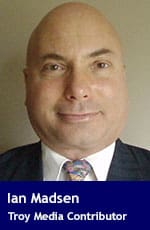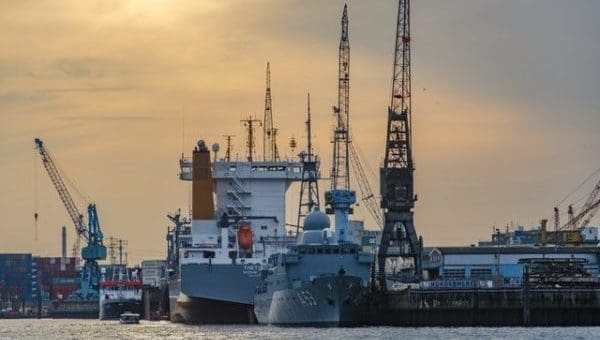 Export Development Canada (EDC), a Crown lending corporation, faces controversy for funding Turquoise Hill Resources. The mining firm allegedly used offshore entities to minimize the taxes it pays, including to Canada. EDC’s $1-billion-plus loan to Turquoise Hill represents nearly 1.5 percent of the lender’s assets.
Export Development Canada (EDC), a Crown lending corporation, faces controversy for funding Turquoise Hill Resources. The mining firm allegedly used offshore entities to minimize the taxes it pays, including to Canada. EDC’s $1-billion-plus loan to Turquoise Hill represents nearly 1.5 percent of the lender’s assets.
EDC is also trying to repossess a Bombardier executive jet from the Gupta brothers, deadbeat friends of the ousted president of South Africa. Bombardier is another large EDC client.
Aerospace accounts for 15 percent of EDC’s finance and insurance portfolio. Bombardier is by far the largest player in this space in Canada. That creates fears that EDC unduly exposes itself and Canadian taxpayers to the risks of lending or guaranteeing lending to a large, politically important client (since it’s based in Quebec).
Bombardier went through a near-death experience courtesy the U.S. Commerce Department’s attempt to extract duties after a complaint by Boeing Inc. Washington imposed 292 percent tariffs on Bombardier’s C Series aircraft. Ultimately, the U.S. International Trade Commission ruled in favour of Bombardier.
Aircraft purchases by domestic and foreign buyers are heavily financed by government agencies such as EDC. The C Series division was given to Airbus to manufacture in Alabama before the tariffs were struck down. EDC could have been on the hook, badly, for a sales contract that fell through with Delta Airlines prior to that decision.
EDC’s mission is to finance Canadian exporters and aid Canadian firms investing or operating abroad. It had 5,749 clients in 2016. It funds ventures that are too risky for ordinary commercial banks or insurers to handle; unavoidably so, for industries such as mining.
Few nations are deemed entirely safe, uncorrupt, honest, and transparent by the World Bank and Transparency International (a global anti-corruption coalition). Mongolia, whose royalty and tax regime is unreliable, and where Turquoise Hill operates, is not one of them.
Most nations that EDC’s clients are involved with are not in turbulent or corrupt Third-World autocracies. However, even advanced economies and legal systems can be hard to navigate for naïve Canadian firms. Import restrictions, product standards, logistics, enabling counterparties in the importing nations, and language issues complicate international trade and investment.
Just securing payment for goods, or not having assets in a foreign location damaged, stolen or confiscated, is hard enough. Ensuring funds elude corrupt officials is nearly impossible. Multinational corporations spend billions of dollars globally on sales facilitation, consulting and lobbying firms and individuals. They end up spreading cash around to clinch contracts with local firms or governments.
EDC plays in this vipers’ nest, hence episodes such as Turquoise Hill and the Gupta brothers may be inevitable.
While EDC recently sent a multimillion-dollar dividend to Ottawa, its true risks and implicitly assumed costs may not be fully reflected in its portfolio of loans and other investments of dubious quality or safety.
Judging by its reported financial results, EDC is quite solvent and prosperous. The company provides a great deal of disclosure, while maintaining client confidentiality, but it’s difficult for outsiders to know how much risk EDC really takes on and the nature of it.
At minimum, reinsurance or sale of some of the worst risks seems to be appropriate. As EDC is solidly profitable, growing and has a surprisingly and fairly consistently low loan loss ratio (under one percent), it’s a good candidate to launch into the private sector.
Divesting Canada’s taxpayers of this valuable financier that doubles as a political football is a plausible idea that policy-makers should put on their agenda.
Ian Madsen is a senior policy analyst with the Frontier Centre for Public Policy.
The views, opinions and positions expressed by columnists and contributors are the author’s alone. They do not inherently or expressly reflect the views, opinions and/or positions of our publication.


